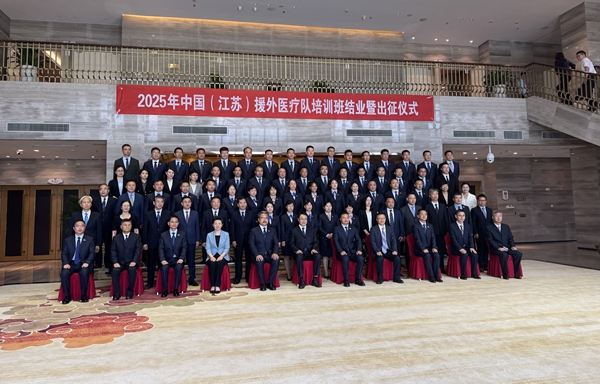So you want to be a star? Think you'll have better luck achieving that dream in China? Well, in terms of getting your face on TV or in a movie, it's more than feasible. There's a lot of interest in getting foreigners on TV, even if it's just for 15 minutes. While opportunities can come at any time, you would do well to remember a few simple, yet crucial points.
Most major TV stations are managed at the provincial and even city level. Each province in China has its own station, each with several channels (usually eight). Add that to the five more stations that most city governments run and you've got a lot more choices beyond just CCTV and a few private stations. One producer commented on the pressure that filling thousands of hours of airtime can create. While some of these stations only broadcast in the native dialect, all of them are desperate for content.
My friends learned this when they started the TV circuit two years ago. The story of Colin, the American who nursed his Chinese girlfriend back to health after a car accident, was first reported by the Suzhou Broadcasting Station, but they've now been on a dozen different channels all telling the same story. The reason for this repetition is simple: they consistently bring ratings.
Most provincial level stations are broadcast nationally, and in fact are in fierce competition for ratings. Hunan Broadcasting System's "Super Girl" once attracted 400 million viewers and, until its recent cancellation, helped put the tiny station in second for advertising revenue after CCTV itself. That's a 200 billion dollar industry. With such rewards for capturing the attention of the viewing public, most station managers are willing to try anything to stand out, provided it doesn't violate any censorship policies. And, even in 2011, having a foreigner who can speak Chinese is still a great way to stand out.
The first prerequisite for being on TV is to be able to hold your own in Chinese. For our show, we were asked to speak to the host and a panel of questioners for well over two hours. It was later admitted that one reason I was invited was because I could speak so clearly. Merely speaking Chinese is often not enough, however. The ultra-censored media of China have a narrow range of entertainment options available to them, and the overwhelming preference of government censors is happy programs. And if there's one thing that makes people happy, it's singing and dancing.
Even though our story was tragic, and in fact the theme of the show was overcoming adversity, the director still found a way to work in some fun. Even after sharing stories of failed businesses, death in the family, and major accidents, guests were asked to show off their singing, dancing and other talents. After describing the heartache of a three year recovery, my friend was asked to show off his dancing chops to the likes of Michael Jackson and the Beastie Boys.
Regardless of what kind of show you might want to do, without a talent, you probably won't get your foot in the door.
The desire to stand out amongst the many TV stations in China means that directors are willing to try alternative talents. Since I am unable to dance and didn't want to sing on camera, we instead decided to present some pasta that I had made to show off my cooking talents. If you're going to try an alternative talent, be sure to prepare everything yourself. It wasn't until filming had begun that we realized we had only chopsticks and no plates. Eating out of Tupperware looks as bad on TV as it does at home.
So they edited it out: there was no western food in the version of the show that aired. The last thing to keep in mind is that no one wants you to look bad on TV. The editors are going to do everything they can do to make you look good. They've got hours of footage to fill only a 45 minute spot and all the tricks of the modern editing room to aid them. As long as you follow the directions from the TV crew, the final product will be fine. Long-term expats used to the doublespeak of unscrupulous employers might be looking for the strings attached, and even become recalcitrant to follow directions. Knowing what final product people are shooting for, TV is one of the places you can fully trust.
So how can you get started? Not everyone has a friend with immense experience. One way is to put you on the internet first. A few months ago, an enterprising African posted himself singing a patriotic song with his QQ number attached. He's still making the TV circuit today. If that's relying too much on luck for you, try an agency. Any major city will have some film and TV agents you can find online. Agents occasionally troll foreign hotspots, but it's easier to contact them. Finally, simply going into the TV station in your town (easily recognized by the huge antenna sticking out of the top), is a good way to introduce yourself. I asked the producer of the show what she thought of this and she said she wished foreigners would come to them instead of them having to scour university campuses.
Remember that acting, like any work, should be paid. If you're being interviewed or joining a talent show, that's one thing. But there are actually some foreigners trying to make money off professional acting, and expect at least 600 yuan for a day's work, if not 1,000. Not everyone can be like Mark Roswell (Da Shan) or American actor Jonathan Kos-Read, but it is a fun side-job for some.
If you've ever wanted to be on the big screen, China's a great place to try. With so much airtime, finding someone interested in putting you on shouldn't be too difficult, as long as you've got a talent to display. And with a society still dedicated to making it look like everything's wonderful, you're sure to come off looking good.




















